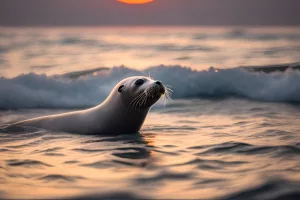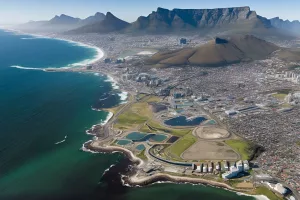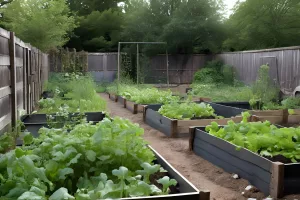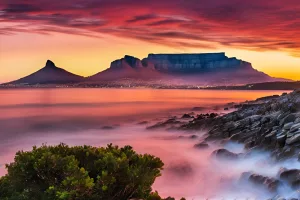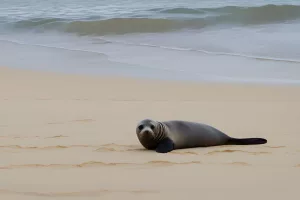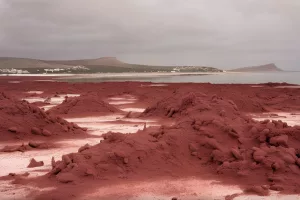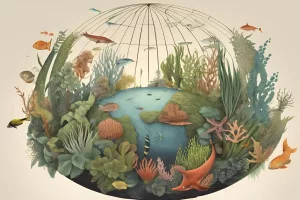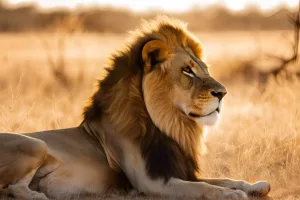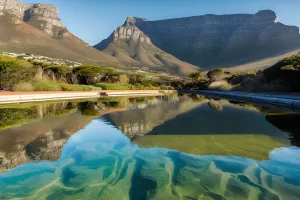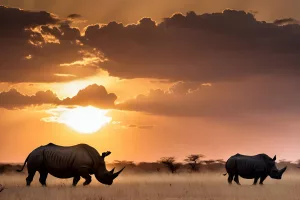Hiking in Cape Town’s beautiful wilderness is exciting, but it needs careful planning. To stay safe, start your hike early to avoid the hot sun, wear light clothes, and bring plenty of water—about 500ml for every hour. Remember the emergency number, 021 937 0300, just in case. While the stunning views from places like Lion’s Head call to adventurers, the heat can turn a fun outing into a risky situation, so respect nature and stay alert! Enjoy the beauty, but always be prepared!
At Santos Beach in Mossel Bay, a sunny day turned alarming when two people were attacked by seals just an hour apart. The local rescue team quickly sprang into action, helping the injured and raising awareness about the risks of rabies in seals, which has become a growing concern. Though these seal attacks are rare, they remind everyone to keep a safe distance from these playful creatures and respect their space. As the community reflects on this unusual event, it’s clear that understanding and protecting marine life is vital for both people and seals to thrive together by the ocean.
Cape Town is facing a serious sewage crisis, with around 32 million liters of untreated sewage flowing into the ocean every day. This pollution threatens the beautiful beaches and the health of people who visit them, especially at popular spots like Camps Bay and Hout Bay. Though the city has started a plan to improve its water systems, experts agree that quicker action is needed to tackle this urgent issue. As Cape Town works to fix its sewage problems, it highlights the need for cities everywhere to find smart and sustainable solutions to protect their environments and communities.
In Citrusdal, farmers face tough times as floods destroy their crops and cut off their roads. Their once vibrant fields of vegetables have turned into sad reminders of loss. Despite rising food prices and the struggle to find enough to eat, these farmers show incredible strength and teamwork. With a passionate spirit and hope for better harvests, they continue to care for their land, dreaming of brighter days ahead. Their story is a powerful reminder of resilience and the deep connection between people and nature.
Cape Town is a hiker’s dream, filled with amazing trails that show off nature’s beauty. From the steep climb up Table Mountain, where breathtaking views await at the top, to the peaceful Kasteelspoort trail leading to the stunning “Diving Board,” each path offers its own adventure. Lion’s Head offers a magical experience, especially at sunrise or sunset, while Chapman’s Peak boasts dramatic coastal views. No matter which trail you choose, exploring Cape Town’s scenic beauty brings joy and connection to the great outdoors.
The Aurora Australis, or Southern Lights, is a breathtaking light show in the sky, caused by powerful solar flares. This weekend, South Africans might get a rare chance to see this dazzling display due to a strong geomagnetic storm from sunspot 3842. The storm could light up the night with vibrant colors, much like a magical painting across the heavens. While it’s an exciting opportunity, the storm may also disrupt technology on Earth. So, as you gaze up at the sky, remember to enjoy this beautiful connection to the universe above!
At Muizenberg Beach, a young seal was brutally attacked, highlighting the growing violence against Cape Fur Seals. The Hout Bay Seal Rescue Centre reported this sad event, showing the need for people to learn how to protect these animals and respect their space. Sadly, this isn’t the first time; seals are facing more dangers from humans due to misunderstandings, like fears about rabies. To help save the seals, everyone is urged to keep their distance and report any harmful behavior, promoting a peaceful coexistence with these beautiful creatures.
Saldanha Bay is a beautiful place, but it’s covered in a troubling red dust that comes from the nearby Transnet Port Terminal, where iron ore is shipped out. This dust, despite efforts to control it, is making life hard for local residents, who are frustrated by the constant mess it creates in their homes. A local group called the Red Dust Action Group is fighting for cleaner air and better living conditions, highlighting the struggle between industry and community health. While the port helps the economy grow, the people of Saldanha Bay hope for a future where both progress and the environment can thrive together.
The Elsieskraal River Green Belt in Cape Town is a beautiful green space that connects neighborhoods and supports local wildlife. It serves as a peaceful escape for residents and plays a key role in keeping the city’s environment healthy. Recently, community volunteers gathered to clean up the area, removing a large amount of waste and showing how teamwork can make a big difference. This initiative highlights the importance of caring for nature, reminding us that even small actions can help preserve our planet for future generations.
Global cooperation for environmental sustainability is all about countries working together to tackle big problems like climate change, pollution, and the loss of plants and animals. Recently, leaders gathered in Rio de Janeiro to discuss how to help those who need support, especially developing countries. They talked about protecting oceans, reducing waste through recycling, and finding new ways to finance these efforts. The message was clear: if we combine our resources and ideas, we can create a healthier planet for everyone now and in the future. Together, we can make a difference!
The Damara Trail is a brandnew hiking experience in South Africa’s De Mond Nature Reserve, designed for everyone to enjoy at their own pace. Over two days, hikers can explore breathtaking landscapes, learn about local nature and culture, and connect deeply with the environment. The trail combines gentle walks with educational signs, revealing fascinating stories about the area. As you wander along, you can breathe in the fresh air and feel the peace of nature, making it a perfect escape from the rush of everyday life. Bookings open on October 4, inviting adventurers to embrace this special journey!
Table Mountain is a breathtaking natural wonder in Cape Town, known for its flat top and rich history. The Table Mountain Aerial Cableway, which has been taking visitors to the summit since 1929, offers stunning views of the city and the unique plants that grow there. It has welcomed many famous visitors, showing how important it is to both locals and tourists. As it approaches its 95th anniversary, the cableway celebrates its role in connecting people to nature and fostering a sense of wonder for all who ride it.
Capture the magic of your safari adventure with just your smartphone! To take amazing photos, use the soft sunlight during the early morning or late afternoon for vibrant colors. Get up close to the animals—avoid digital zoom for clearer shots, and steady your phone on solid surfaces to avoid blurriness. Remember to think about composition, like placing your subjects following the rule of thirds, to create exciting images. With these easy tips, you can turn your snapshots into stunning memories of wildlife in their natural world!
Uber Safari in Cape Town is an exciting new way to explore the wild! With just a few taps on the Uber app, you can book a luxurious day trip to Aquila Private Game Reserve to see amazing animals like lions, elephants, and rhinos up close. The adventure starts with a warm welcome and breakfast, followed by a thrilling safari ride led by expert guides. You’ll enjoy delicious local food and learn about wildlife conservation while surrounded by stunning landscapes. Uber Safari makes experiencing Africa’s magic easy and fun for everyone!
The Resilient Beauty of Cape Town’s Natural Trails: A Tale of Restoration and Anticipation
The Steenbras River Gorge and Crystal Pools Hiking Trail in Cape Town is getting a makeover after heavy rains caused damage. It will reopen on November 1, and hikers can start booking then. This delay, while disappointing, shows the city’s commitment to keeping everyone safe and preserving the trail’s beauty. As nature changes, so does our appreciation for it, reminding us to be patient and respectful. When the trail reopens, it will be not just a hike, but a celebration of nature’s resilience and the hard work behind it.
In Kruger National Park, a big win against rhino poaching just happened. Two former rangers, Lucky Mkanzi and Joe Sihlangu, were sentenced to 20 years in prison for their roles in the illegal hunting of rhinos. This case shows how important teamwork is in fighting wildlife crime, as law enforcement worked hard to catch these betrayers. Their conviction sends a strong message that poaching will not be tolerated, reminding everyone to protect the beautiful animals in our world.


